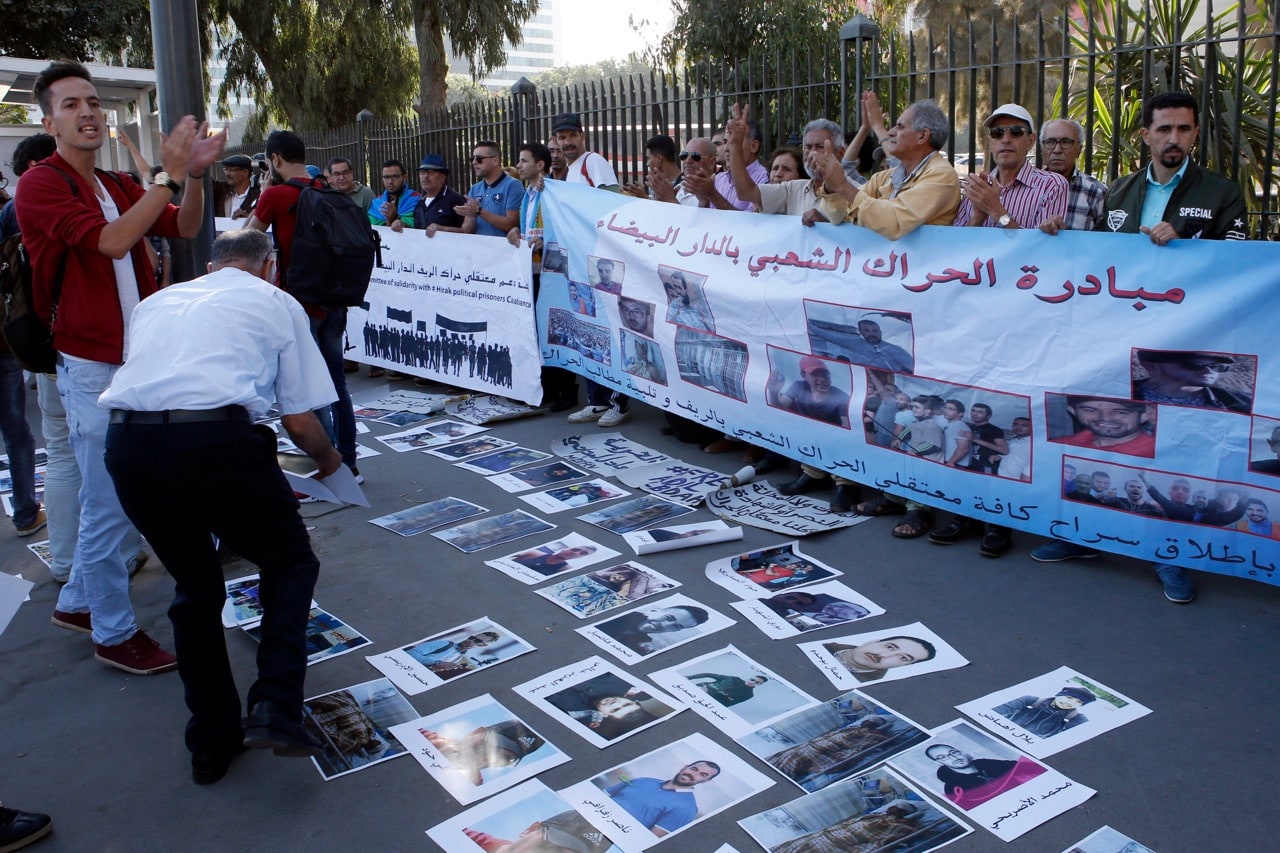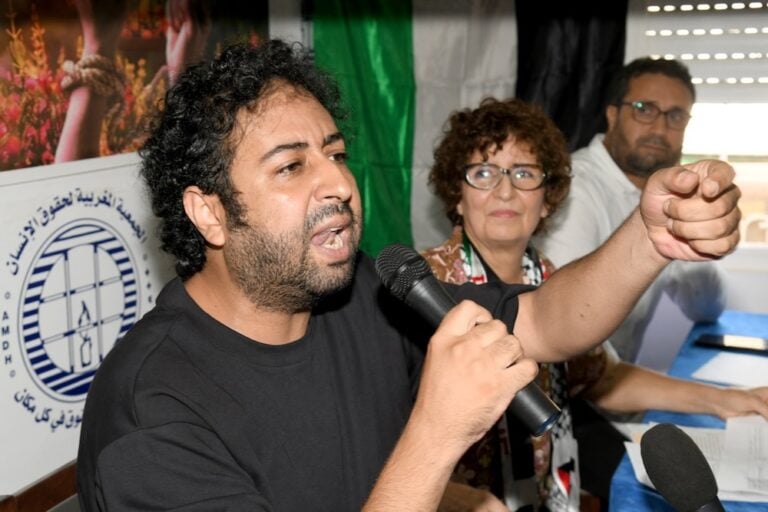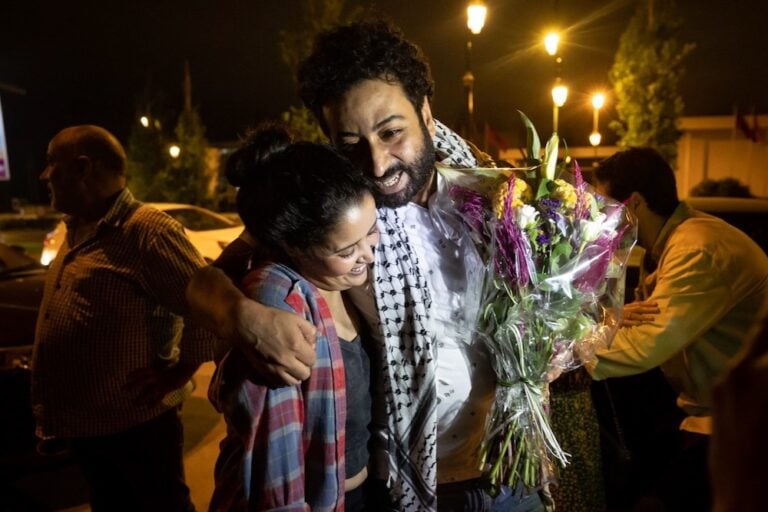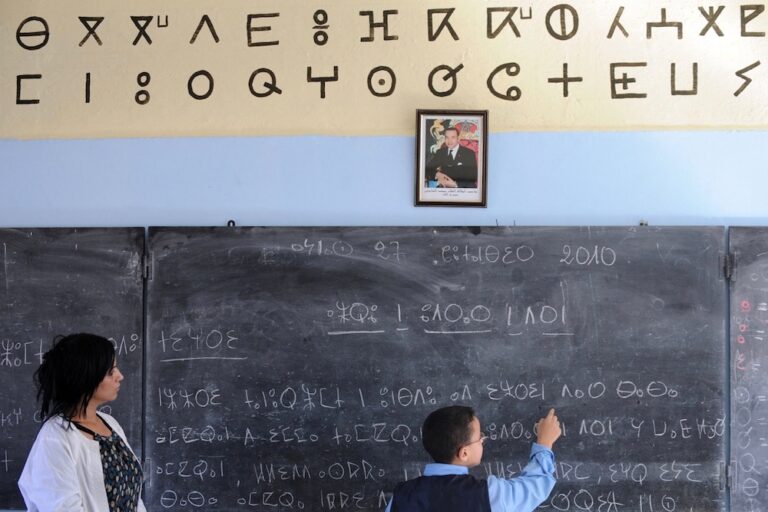One year after protests erupted in the northern city of Al Hoceima, Moroccan media are still struggling to cover the news, despite intimidation and legal threats from Moroccan authorities.
This statement was originally published on globalvoices.org on 2 November 2017. It is republished here under Creative Commons license CC-BY 3.0.
One year after protests erupted in the northern city of Al Hoceima, Moroccan media are still struggling to cover the news, despite intimidation and legal threats from Moroccan authorities.
The protest movement in Morocco’s Rif region began with the death of fish vendor Mohsin Fekri on 29 October 2016. Fekri was crushed to death by a garbage truck while trying to retrieve his fish, which had been confiscated by local authorities. The protests have since grown into a “Hirak” or a movement for jobs and economic development, and against marginalization and corruption. Despite a government ban on demonstrations, protests were still held over the weekend to commemorate Fekri’s death.
As the unrest continues, journalists are facing a myriad of restrictions including media bans, expulsions and legal threats.
Moroccan freelance journalist Omar Radi, who has been covering the protests himself, told Global Voices that when it comes to reporting on social unrest in the Rif region, “there is a climate of terror.”
“Those who speak to the press can risk going to jail,” he said. “People are afraid to get out of their homes and cops are everywhere.”
At present, at least seven media workers are behind bars for their reporting on the Rif protests.
Outspoken journalist and commentator Hamid Mahdaoui, who runs the independent website Badil.info, was arrested in the city of Al Hoceima, where he traveled to cover protests. On July 20, 2017, Moroccan authorities had imposed a protest ban. When passers-by who recognized him stopped him and started a conversation with him about the Hirak, Mahdaoui criticized the ban. He was accused and convicted of “inciting” a protest.
On appeal, a court increased Mahdaoui’s sentence from three months to one year last September, prompting him to launch a two-week hunger strike.
Badil.info which covers a variety of topics in Morocco including politics, human rights and corruption, is among few independent websites that have been able to report on the protests. But on October 22, 2017, collaborators announced that the site would cease publishing, due to what they described as financial constraints.
Mahdaoui is also known for his outspoken online criticism of the Moroccan authorities, which he expresses primarily through his YouTube channel, where he discusses the political and human rights situation in the country.
In a separate case, Mahdoui has been accused of “not reporting a crime endangering state security” to the authorities, due to a phone conversation (an official recording of which was obtained via wiretap) between himself and a Moroccan anti-monarchy activist based in the Netherlands, in which the activist described a plan to bring weapons into the country.
In addition to Mahdaoui, six citizen journalists who were arrested due to their coverage of the Rif protests are currently behind bars. Among those arrested Mohamed El Asrihi and Jawad Al Sabiry from Rif24.com, a local citizen media website that provided extensive coverage of the protests in Al Hoceima and other cities.
El Asrihi, the editor and director of Rif24.com stands accused of “illegally practicing journalism” because he does not posses a press card. While the site has not been updated since mid June, the Facebook page of Rif 24 continues to provide coverage of the Hirak and the protests.
Although they have seen less harsh consequences, the crackdown has also affected foreign media workers. On 27 September, police detained Iranian-British journalist Saeed Kamali Dehghan in Al-Hoceima and expelled him from the country reasoning that he did not have an “authorization” to report from Morocco. Dehghan, who works for The Guardian, traveled to the Rif region to cover the protest movement and interview activists there.
Morocco is ranked 133rd in the 2017 edition of RSF’s World Press Freedom Index. The international press freedom watchdog noted “a slow but steady decline in media freedom” in the country where “the kingdom’s authorities use political and economic pressure to deter local independent media outlets from covering highly sensitive subjects”.
The closure of Badil and repression of various media workers who have played a key role in covering the protests in the Rif region has left Moroccans – and those outside the country – with even fewer ways to stay informed about the social movement.



